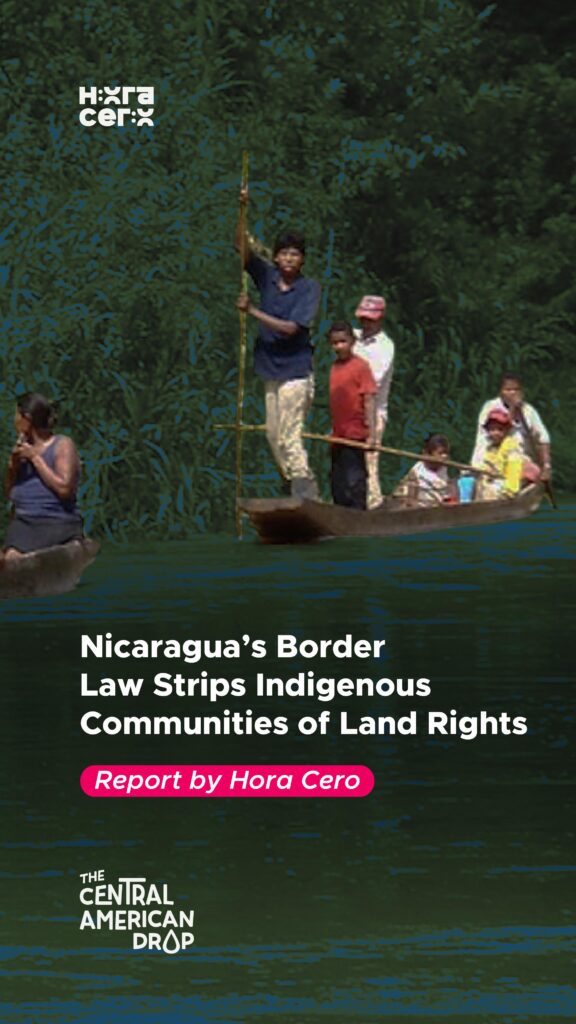
Nicaragua’s Border Law Strips Indigenous Communities of Land Rights
Maldito País
septiembre 2, 2025
In early August, the Nicaraguan National Assembly approved the new Border Territory Law, which declares any strip of land located 15 kilometers inside the national border to become state property.
The new law will affect approximately 18,000 square kilometers and a total of 27 municipalities across the country. The expansion of the border implies a greater military presence that could result in restricted mobility for the affected communities.
Its approval eliminates the regulations that recognized the property rights and autonomy of indigenous and Afro-descendant communities located in these border territories.
According to the Network of Indigenous Defenders of the Caribbean Coast, some 100 Indigenous and Afro-descendant communities located near Honduras and Costa Rica, which were previously protected under the Statute of Autonomy and the Communal Property Law, will be affected.
The new law repealed the Border Legal Regime Act, which established respect for legislation linked to international agreements on indigenous peoples and their property.
This situation adds to the crisis of violence experienced by indigenous peoples in Nicaragua due to the invasion of settlers carrying out extractive activities on protected lands.
The president of the environmental organization Fundación del Río believes the new law seeks to legally protect mining concessions held by Chinese companies.
In the last two years, 20 concessions have been approved, several of them in protected areas, such as the permit granted to Thomas Metal S.A., which covers a 47,410-hectare plot, part of which is within the Río San Juan Biosphere Reserve, bordering Costa Rica.


